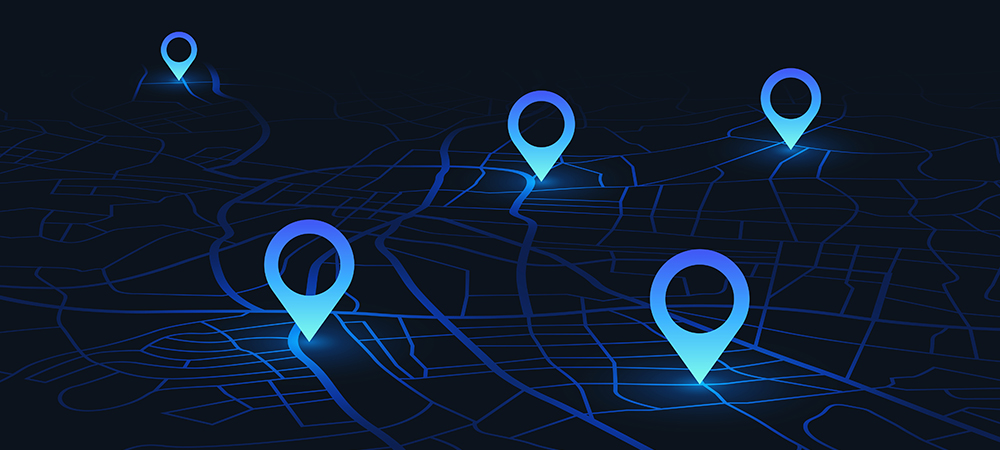Aliaksandr Kuushynau, Head of Wialon, Gurtam, speaks to Intelligent SME.tech about Gurtam, some of the key challenges SMEs are facing and a recent implementation with RBR Betón, a fleet management company based in Slovakia.

Gurtam is a developer and provider of software solutions for fleet management, GPS tracking and IoT, based in Lithuania, with offices in Boston, Dubai and Buenos Aires.
Wialon is the company’s flagship product and is an IoT platform, offering versatility, flexibility and visibility with open API. The solution is currently active in over 150 countries – including Slovakia. Recently, RBR Betón – a Slovakian company specialising in fleet management – wanted to install more precise flow meters that would be easy to use and calibrate so the company chose to use Wialon. Aliaksandr Kuushynau, Head of Wialon, speaks to us about this implementation, Gurtam as a business and how important technology is for SMEs.
- Tell us more about Gurtam and the clients and markets served?
Gurtam is a telematics and IoT solutions developer which helps businesses in almost any sector all over the globe to use telematics to solve their business problems. We have offices in Lithuania, the UAE, the US and Argentina, with over 300 employees around the world.
Our flagship product, Wialon – a multifunctional IoT platform – offers broad functionality and flexibility with open API (application programming interface), thus enabling powerful integrations and ERP (enterprise resource planning). Wialon is used in a big array of business spheres, from long-haul transportation and cold chain to agribusiness and waste management.
- How has the business grown since it started and how have you ensured growth?
In the early 2000s, the majority of Wialon customers were based in Eastern Europe where the need for our solutions was most prominent, such as control of routes and schedule adherence, misuse of corporate fleets or fuel theft. As we grew, we realised that businesses all over the world have similar problems and that our solutions have far-reaching applications beyond just vehicle tracking. Since then, Wialon has become the IoT equivalent of Lego: one can build almost anything out of its blocks, within guidelines and by following instructions.
COVID-19 was a shock for the transportation and logistics industries as business supply chains slowed down. In some countries, we had an initially huge decrease in mileage for vehicles. In some countries, the number of vehicles connected to Wialon decreased by a factor of 10 by April 2020 and that was our reality during the pandemic.
The same scenario unfolded in numerous countries, although the dynamics were different in each region. However, with the measures that businesses put in place, they found ways to quickly react and return to normal. Logistics and transport businesses also found new opportunities, such as last-mile deliveries for things such as groceries and medicine. The companies with advanced GPS and IoT technologies were able to adapt to these new opportunities and quickly. So, we saw disruption at the start of the pandemic before a return to normal and then even growth in demand for GPS tracking and IoT in new areas.
- What are some of the key challenges your [SME] customers are experiencing and how does your technology help them to address these challenges?
As touched on, the pandemic caused many businesses to come to an initial standstill, but many SMEs also realised how ill-equipped they were for remote working and operations. Specifically, many lacked the data and oversight to ensure they could function given the new rules, regulations and requirements created by the pandemic. Many SMEs are still struggling with visibility over their operations even as we come out of the worst of things. So Wialon technology is important in helping businesses understand where efficiencies can be made, by using smart devices and IoT to empower them with the data to make key business decisions.
Another knock-on effect of the pandemic was the creation of entirely new logistics and supply chains. That’s not going to surprise anyone to hear, but we, ourselves, participate in the creation of these new chains. For example, the number of online food orders has increased significantly in the last two years. Many grocery chains launched online order functions and home delivery services (if they hadn’t already) and even apparel retailers created new order pick-up points and postal ordering. So, the number of companies of all sizes involved in last-mile delivery and courier delivery of parcels and other cargo has shot up.
The challenge for these businesses became how to react to incoming orders and get them to the end buyer in a fast and efficient manner. This is now possible due to intelligent automation software and technology, which is helping businesses operate more effectively.
- Can you share any examples of completed/ongoing projects and the benefits realised?
One specific case study we’ve had recently was with fleet management company RBR Betón in Slovakia. It owns 80 vehicles alongside a network of 1000-litre diesel filling stations and was using analogue flow meters to measure liquid flow. This method did not lead to a precise measurement, and eventually, they were losing approximately 800 litres of diesel per month.
Mimicar s.r.o – a Wialon provider – proposed to RBR Betón a solution that utilised G-flow meters, which enabled every fuel transaction to be recorded and transmitted to Wialon for accurate monitoring. The integrator’s custom application assigned specific fuels to each vehicle so that the client would be able to compare fuel consumption in reports. The GPS trackers connected to fuel sensors allow operators to gather real-time fuel information, detect company fuel misuse and make fuel theft obvious and quick to spot. Mimicar s.r.o.’s solution has attracted other fleet owners and the telematics service provider has already received 25 plus new orders.
It’s a very specific business need that the smart application of technology has been able to fill and help RBR Betón’s business to grow.
- What is your best practice approach to fleet management [for SMEs] and why should technology be seen as a key enabler?
Simply put, the best practice is to take every opportunity to minimise waste, which can be inherent in fleet management if not carefully managed. At SME level, in particular, this can really impact a company’s bottom line. There’s the need to mitigate risk, by only planning workload with vehicles that are available to be used and not about to need servicing, etc. Then there’s the need for efficient costing, investing in vehicles with high mileage but few breakdowns and avoid those which show regular operational issues. It’s also important to be able to properly delegate the responsibilities of fleet management in a transparent way, which is only possible with software and analytics that provides a holistic view of a fleet’s activities.
- How important is technology to your own business for ensuring the ability to scale and how do you plan to grow the business further?
Technology is at the core of everything we do and we’re proud to have created a community around the technology we offer. By being an active part of all the various use cases for our technology, we’re able to predict future areas of need and grow our products accordingly, ahead of clients’ needs.
Our immediate focus for Wialon is to foster development in the IoT area, with transport telematics traditionally being our domain. We will continue to further grow Wialon’s versatility and make it relevant and applicable for more and more business areas and IoT fields. We will also avoid diving into only a single sector with our solution. We’d rather develop Wialon in such a way that our value-added resellers, service providers and partners who use Wialon can embark on any project and be sure that Wialon would make a perfect fit for their business needs and upcoming opportunities.
- What role will technology play in this industry looking ahead?
We’re seeing the future will involve greater use of backend solutions for aggregation and normalisation of data from various IoT and telematics sources. These can manage devices over the air, apply custom algorithms to real-time data, create live dashboards and much more. At the same time, we will continue to further grow our products’ versatility and make it relevant and applicable for more and more business areas and IoT fields. Also, we anticipate vehicles will become even safer – informing each other about accidents and hold-ups. Technology will also enable a strong push on climate change by greatly reducing emissions at a time when business is aware of how important this is. It’s an exciting time for those involved in such technologies – and we’re excited to be a part of it.




